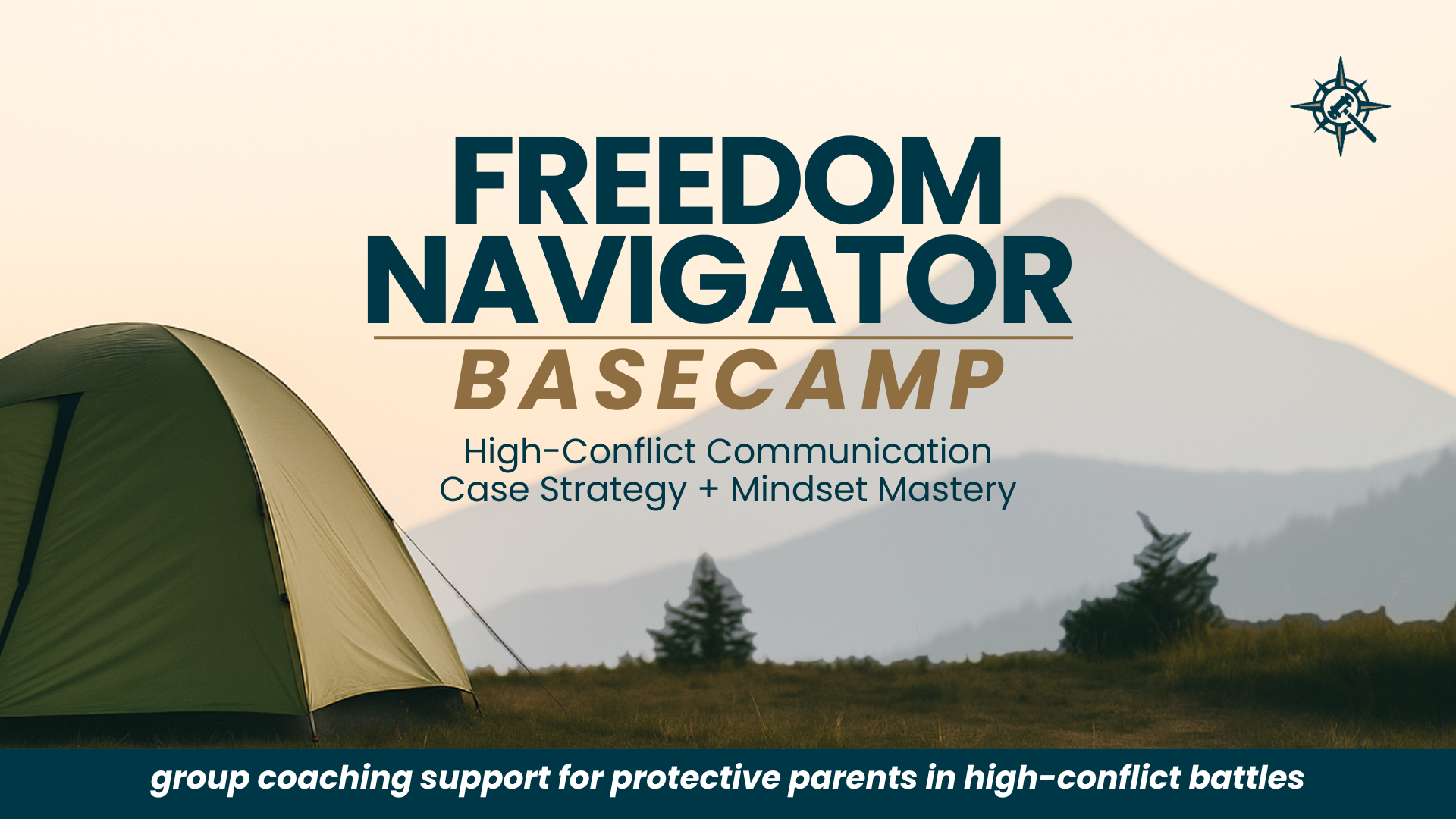How to Anticipate Post-Separation Abuse Tactics in Court
Part 5 of 5 - How to Anticipate and Survive Post-Separation Abuse Dynamics in Family Court
If you’ve made it through this blog series, take a deep breath—you’ve just learned one of the most powerful frameworks for navigating abuse dynamics in divorce and custody litigation.
Let’s recap:
Entitlement reveals what they believe they deserve.
Control shows how they try to keep it.
Coercion is how they pressure you to give in.
Compliance is what they expect you to keep offering.
These four elements—entitlement, control, coercion, and compliance—aren’t just abstract concepts.
They’re a real-time map of what you’re up against.
And when you learn to identify each one in action, you stop reacting blindly and start responding strategically.
Why This Framework Matters in Court
Abusers rarely change just because a judge gets involved.
If anything, the court system often becomes a new stage where they can escalate old behaviors in legally sanctioned ways.
That’s why understanding these four elements is so critical.
Because when you can anticipate the patterns, you become better equipped to:
Predict their moves before they make them
Ground your expectations in reality—not false hope
Prep your paper trail with laser focus
Respond strategically instead of emotionally
Protect your energy and stop spiraling
A Simple Exercise to Put This Into Action
As you move forward, take 30 minutes to work through this:
Entitlement: What does your ex believe they’re entitled to—emotionally, legally, financially, socially?
Control: How have they historically kept control over you, and where are they trying to control the court process?
Coercion: What methods have they used to pressure, guilt, threaten, or wear you down?
Compliance: Where are you still giving compliance just to avoid conflict—and what would it look like to safely step back from that?
Write it down. Name it. Own it.
This is your prep work.
And Remember—You Have the Right to Listen to Your Intuition
If your gut is screaming that something’s off, trust it.
You’re not too sensitive. You’re not making things up.
You’re responding to a pattern of behavior that is often designed to make you doubt your instincts.
This series isn’t just here to educate you. It’s here to remind you:
You’re not crazy.
You’re not alone.
And you’re not powerless.
Struggling to Figure Out How to Put This into Practice?
If this framework helped clarify what you’re facing, imagine how powerful it could be to apply it to your case step-by-step, inside my trauma-informed coaching space designed specifically for protective parents in high-conflict cases!

BASECAMP shows you every step to draft your paper trail, organize your evidence, present your case, and master your mindset with tools that actually work.
You really can leave behind the confusion, chaos, and fear... and move forward with clarity, confidence, and calm. I watch my clients experiencing this shift every single day!
🎯 Learn more + snag your spot on my waitlist here.